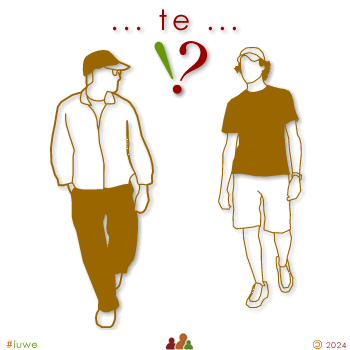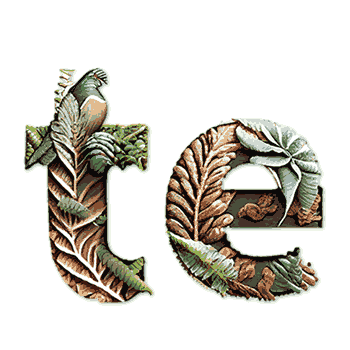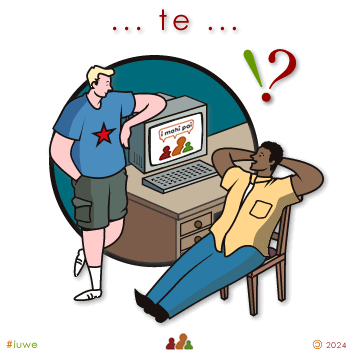te - the



| rauemi | puna |
|---|---|
| oro | doug hauraki, ngāti porou … |
| reo | kapai group … |
| pikitia | kapai group … |
| ipurangi | whanau.tv … |
| i-kupuhū app | iOS + android … |
te - the



| rauemi | puna |
|---|---|
| oro | doug hauraki, ngāti porou … |
| reo | kapai group … |
| pikitia | kapai group … |
| ipurangi | whanau.tv … |
| i-kupuhū app | iOS + android … |
Te is the most commonly used word in the King James bible.
Te is the first of the 40 most frequently used te reo māori words.
Te is a definite article, that indicates that the following base word is singular.
| te reo | eng |
|---|---|
| te āporo | the apple |
| te kupu | the word |
| te rā | the day |
Te begin definite nominal phrases.
Nominal is a word or word group functioning as a noun
Te is used when a whole class of objects is being referred to.
| te reo | eng |
|---|---|
| te kererū | the (class of) pigeons |
| te ika | the (class of) fish |
| te waka | the (class of) cars |
kei te [verb] - refers to present continuous
| te reo | eng |
|---|---|
| kei te aha a pita | what is peter doing |
| kei te kōrero ia | he is talking |
| kei te moe a mere | mary is sleeping |
| kei te moe te tinana | my body sleeps |
| kei te aha koe | how are you |
| kei te pēwhea koe | how are you |
i te [verb] - refers to past continuous tense
| te reo | eng |
|---|---|
| i te aha a pita | what was peter doing |
| i te kōrero ia | he was talking |
| i te moe a mere | mary was sleeping |
| i te aha koe | how were you |
| i te pēwhea koe | how were you |
nō te - when
refers to the point in time at which an action took place
| te reo | eng |
|---|---|
| no te ata ka haere a pita | peter left in the morning |
| i te kōrero ia | he was talking |
| i te moe a mere | mary was sleeping |
| i te aha koe | how were you |
| i te pēwhea koe | how were you |